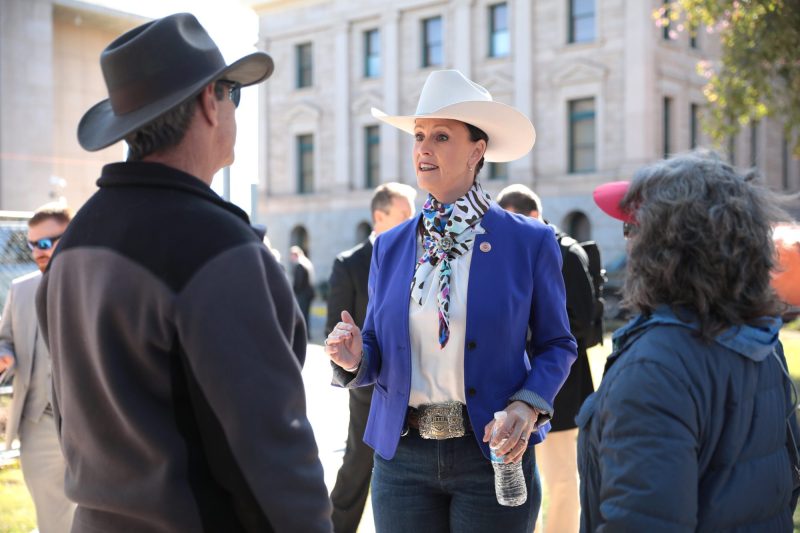 By Evan Wyloge | Arizona Center for Investigative Reporting
By Evan Wyloge | Arizona Center for Investigative Reporting
 This fall, Arizona voters will choose three utility regulators, and while one might expect that each of the main parties would run a full slate of candidates, Democrats are only running two.
This fall, Arizona voters will choose three utility regulators, and while one might expect that each of the main parties would run a full slate of candidates, Democrats are only running two.The strategy of running two Democrats instead of three for the Arizona Corporation Commission makes the state’s underdog party counterintuitively more competitive to win at least one seat, while ruling out the possibility of winning three.
In Arizona, Republicans outnumber Democrats by roughly 1.16 million to 991,00 registered voters. But those who aren’t registered with the two main parties outnumber both, adding up to about 1.2 million voters.
Whether or not this election math sleight-of-hand—running two, instead of three candidates—could help Democrats elect at least one Corporation Commissioner depends on three factors: The large number of the independent voters in the state, the way that “split ticket” voting combinations work, and messaging by Democrats about how the strategy works.
The same methods have been used by both parties in the state’s House of Representatives races, leading to the party with fewer registered voters being able to seize one of two House seats in the district.
For the Corporation Commission race this year, every voter will get to cast three votes. While voters affiliated with one of the two main parties can mostly be expected to vote only for their party’s candidates, among independent voters, some can be expected to split their ticket, voting for some number of Republicans and some number of Democrats.
In the case where Democrats run three candidates against three Republicans, there are 20 combinations of how three votes can be cast, 18 of which split the ticket. For every 18 voters who cast their ballots using each unique combination of those possibilities, all six candidates end up with an even portion of the overall vote: 16.7 percent.
But if these split ticket voters have only two Democrats to choose from, things change. When voters can cast three votes for only five candidates, there are 10 possible ways to vote, nine of which involve splitting a ticket. Under this scenario, for every nine voters that cast their ballots using each unique combination of these possibilities, the two Democrats get 22.2 percent of the total number of votes and the three Republicans get only 18.5 percent of the total number of votes.
This means the more people who split their ticket, the better the two Democrats will do.
The second key for Democrats looking to narrow the gap is communicating to Democrats to cast only two ballots, only for the Democrats, even though they can cast three votes in the race. Foregoing one vote this way amplifies the split-ticket effect, by lowering the overall number of votes cast in the race.
When these mathematical tricks are applied, and some assumptions are made about turnout and voting behavior, the difference between Democrats running two or three candidates is clear: Individually, two Democrats do better than three in any scenario, even though it makes certain they cannot win all three of the seats up for election.
Use the calculator below to enter different turnout rates and what portion of independent voters will split their ticket, to see how it affects a Corporation Commission race where two or three Democrats run.
Over the past four presidential elections, turnout has averaged 75.2 percent. If that turnout is applied to Republicans, Democrats and other voters, and if Republicans and Democrats cast all of their possible votes for only their party’s nominees, and if all independent voters split their tickets, the difference between the two scenarios is significant.
Three Democrats running with those conditions earn 15.8 percent each and the three Republicans earn 17.5 percent each, leaving a 1.7 percentage point margin. If only two Democrats run under the same conditions, the two Democrats earn 19.8 percent each and the three Republicans earn 20.2 percent each, narrowing the margin to less than one-half of one percentage point.







